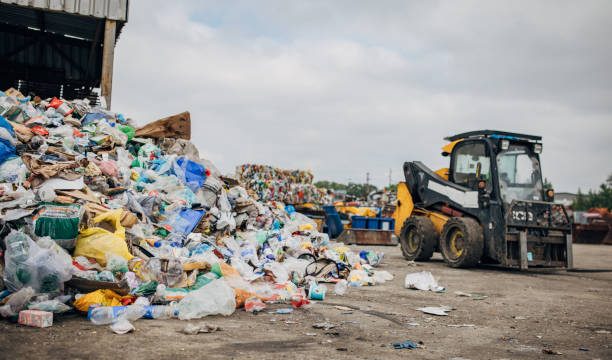
Waste management is one of the most critical environmental challenges of our time. As global population and industrialization continue to rise, the generation of waste—from municipal solid waste to hazardous and electronic waste—has grown exponentially. Effective waste management research focuses on sustainable ways to reduce, recycle, and dispose of waste while protecting human health and the environment.
This blog post provides a well-detailed and SEO-friendly guide to research topics related to waste management, clearly classified into major research areas to help students, scholars, and environmental professionals identify relevant and impactful topics.
Introduction to Waste Management Research
Waste management involves the collection, transportation, processing, recycling, and disposal of waste materials. It also includes the strategies and policies that govern how waste is handled to minimize environmental impact.
Research in this field explores innovative approaches to waste reduction, sustainable materials recovery, and energy generation from waste. It also examines public behavior, environmental policy, and the economic feasibility of different waste management systems.
If you are studying environmental science, civil engineering, public health, or sustainability studies, waste management research offers vast opportunities to contribute to global environmental goals.
Classification of Waste Management Research Topics
Below is a comprehensive classification of research topics related to waste management, grouped into different categories for clarity and depth.
1. Solid Waste Management
Solid waste management focuses on how communities collect, process, and dispose of household and industrial waste.
Possible research topics include:
- Assessment of solid waste management practices in urban and rural areas.
- Evaluating the effectiveness of recycling programs in developing countries.
- Comparative analysis of waste segregation systems in municipal settings.
- The role of public awareness in improving waste management efficiency.
- Sustainable methods for handling plastic waste.
- Waste-to-energy conversion technologies for municipal waste.
- Economic analysis of solid waste recycling initiatives.
2. Hazardous and Biomedical Waste Management
This area deals with the safe handling, treatment, and disposal of hazardous and medical waste that poses risks to humans and the environment.
Possible research topics include:
- Management of hospital waste in healthcare facilities.
- Environmental impacts of improper hazardous waste disposal.
- Safe disposal methods for pharmaceutical and chemical waste.
- Assessment of government policies on biomedical waste management.
- Evaluation of occupational health risks among waste management workers.
- Comparative study of hazardous waste management systems in industrial zones.
- Developing sustainable frameworks for e-waste recycling.
3. Recycling and Resource Recovery
Recycling and resource recovery research focus on converting waste materials into reusable resources to reduce landfill pressure and conserve natural resources.
Possible research topics include:
- The economics of recycling in developing and developed countries.
- Innovative technologies for recycling plastic, glass, and metal waste.
- The role of informal sectors in resource recovery.
- Life cycle assessment of recycled materials.
- Barriers to effective recycling in urban communities.
- Designing sustainable recycling systems using circular economy principles.
- Comparative analysis of recycling behavior among households.
4. Waste-to-Energy (WTE) Conversion
This research area investigates how waste materials can be transformed into usable energy, such as biogas, electricity, or heat.
Possible research topics include:
- Anaerobic digestion of organic waste for biogas production.
- The role of pyrolysis and gasification in waste-to-energy technologies.
- Economic feasibility studies of municipal WTE plants.
- Environmental assessment of energy recovery from solid waste.
- Comparing incineration and biomass energy recovery techniques.
- Life cycle analysis of waste-to-energy systems.
- Policies and incentives for promoting renewable energy from waste.
5. E-Waste Management
Electronic waste (e-waste) is a rapidly growing global concern due to the increased use of digital devices and short product lifespans.
Possible research topics include:
- Assessing the challenges of e-waste recycling in developing nations.
- Environmental and health impacts of e-waste dumping.
- Comparative study of global e-waste management practices.
- Recovery of valuable metals from electronic waste.
- Public perception and awareness of e-waste disposal.
- Designing sustainable e-waste management frameworks for smart cities.
- Role of extended producer responsibility (EPR) in e-waste reduction.
6. Policy, Legislation, and Public Participation
Policies, laws, and community involvement play key roles in achieving sustainable waste management.
Possible research topics include:
- Evaluation of waste management laws and enforcement mechanisms.
- Public-private partnerships in waste management systems.
- The role of environmental education in waste reduction.
- Impact of policy reforms on urban waste collection efficiency.
- Waste management governance in developing economies.
- Effectiveness of community-based waste management initiatives.
- Comparative analysis of international waste management regulations.
7. Sustainable and Smart Waste Management Solutions
Emerging technologies are revolutionizing how waste is collected, processed, and recycled through smart systems and data-driven strategies.
Possible research topics include:
- Use of IoT and AI in smart waste collection and sorting.
- Application of GIS and remote sensing in landfill monitoring.
- Zero-waste cities: strategies and success stories.
- Integration of circular economy principles in waste management.
- Smart bin technologies for efficient waste collection.
- Evaluation of digital innovations in waste management logistics.
- Sustainable waste management practices for smart cities.
Conclusion
Waste management is an essential component of environmental protection and sustainable development. With increasing global waste generation, research in this field is more important than ever. By selecting a relevant and innovative research topic related to waste management, students and scholars can contribute to reducing pollution, conserving resources, and creating cleaner, healthier communities.
Whether your interest lies in recycling, energy recovery, policy development, or smart waste systems, the opportunities for meaningful research are vast and impactful.
FAQs on Research Topics Related to Waste Management
1. What are the main areas of waste management research?
The main areas include solid waste management, recycling, hazardous waste, e-waste management, waste-to-energy conversion, and policy development.
2. Why is waste management research important?
It helps to develop sustainable strategies for minimizing waste, conserving resources, reducing pollution, and protecting public health.
3. Which technologies are used in modern waste management?
Technologies such as anaerobic digestion, incineration, gasification, and AI-based smart collection systems are widely used.
4. What are some global challenges in waste management?
Challenges include inadequate infrastructure, poor waste segregation, lack of policy enforcement, and limited recycling awareness.
5. How can developing countries improve waste management systems?
Through public education, policy reforms, investment in recycling infrastructure, and promotion of circular economy initiatives.
ALSO READ: Research Topics Related to Meteorology









1 thought on “Research Topics Related to Waste Management”